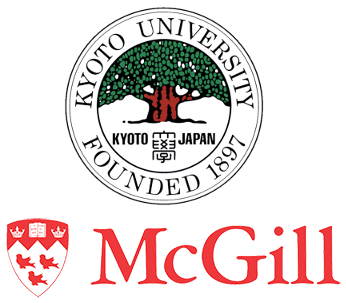The Centre provides an exceptional environment for training of scientists and clinical researchers in genomics and related quantitative methodologies. Candidates are encouraged to contact individual investigators or the Training Office.
Special training opportunities are available through a joint PhD program with Kyoto University as part of the Kyoto-McGill Top Global University Project. For information on the Kyoto-McGill International Collaborative Program in Genomic Medicine (Joint Ph.D), please visit https://www.kyoto-mcgill.org. The application procedure to this program is through can be found at https://www.med.kyoto-u.ac.jp/apply/entrance_examination/genomedoctor/#Eng

Kyoto-McGill Top Global University Project
In October 2014, McGill established a far-reaching collaboration with the University of Kyoto as part of the Japanese government’s new Top Global University Project. The goal of the McGill-Kyoto collaboration is to undertake education and research in genomic and computational methods for “big data” in medicine and biology. Kyoto University has received more than $10 M in government funding for the Top Global University Project to support exchanges of faculty and students, and to contribute to research costs. The annual Kyoto Workshop for Next-Generation Sequencing Bioinformatics, which was established by the McGill Genome Centre and Kyoto scientists in 2011, is now conducted under the auspices of this collaboration. The two institutions are presently to establish a joint PhD degree under the Super Global University Project.
The Kyoto components of the collaboration include groups at the University of Kyoto Faculty of Medicine and the Department of Mathematics. At McGill, the project is based at the McGill Genome Centre but already scientists and clinicians from other McGill groups and hospitals are involved. Activities that have been initiated include collection and exchange of disease cohorts for trans-ethnic mapping studies, metabolomic profiling of large cohorts to identify disease biomarkers, and the development of computational methodologies for genomics. Some of the data for these studies are coming from two cohorts, the Canadian Longitudinal Study of Aging (see below) and the Nagahama City Cohort, a longitudinal prospective study of 120,000 individuals from a single city in Japan.
The first student exchange under the Super Global University Project has taken place with the arrival of the first student to McGill in November 2014. In 2105, the project has been expanded to include additional partner institutions in the UK (Imperial College) and France (Pasteur Institut and the University of Bordeaux).